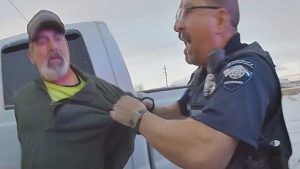LA VETA — In a meeting that mainly focused on a series of legally required resolutions, La Veta’s town board passed resolution #4-16, accepting the Wastewater Sewage Collection Improvement Project as complete. Minus a few punch list items, that project is out of here. The board also passed: • Resolution #1-16, regarding the posting of public notices for board meetings, as required by state law to be done yearly. • Resolution #2-16, which established rules and regulations for using the community center. State and federal entities can us the center for no charge and the board may also waive fees for certain groups and events • Resolution #3-16, approving the agreement with the Colorado Department of Transportation for the Ryus Avenue bridge project. The board also passed Ordinance #286, which is a lease agreement with Jeremiah Mason for a gravel pit just south of the old truck stop on Highway 160. The lease runs for 10 years and covers five acres. More than 20 to 30 tons of gravel will be extracted for road improvements in the town. A request for proposals will be out soon to hire a firm to crush the gravel. The town
has exclusive rights to the site. Mayor Doug Brgoch said, “By going this route the town should save money over paying retail for this gravel. Brgoch added that the town had been in negotiation with Mason for several months and had professionals scout the site. Jay Davis was approved to serve an additional two year term on the Historical Protection committee. After a brief executive session, the board moved to submit a sealed bid to Otero County to purchase a road grader for the town, replacing the one that is no longer functional. With no board or departmental reports submitted, Mayor Brgoch took the opportunity to address the town’s water. Over the past several weeks the town has received numerous complaints, said Brgoch, related to the water supply tasting and smelling like mud. Brgoch stated that traditionally the town takes water from the north lake into the treatment plant. But with recent work having been done at that lake, the town had been taking water from the south lake. Assuming the north lake water was now fine, the town ran water from the north lake for three days, which meant two full cycles of water went into the treatment plant. Apparently the north lake water still has suspended solids, which in turn make the water taste bad. Brgoch stressed the water is safe and meats all required standards. However, the town still has to run the two storage tanks of water (around 750,000 gallons) through the treatment plant. In the-mean-time, the town has switched back to extracting water from the south lake.




